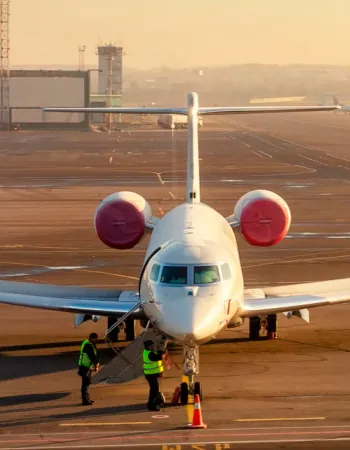
What is an Export License?
An export license is government issued documentation which allows sellers to ship restricted goods. Export licenses are needed for a variety of items.
What Does an Export License Do?
Export licenses allow you to ship items with restrictions from one country to another legally. Every country has its own set of rules and regulations regarding imports and exports. Countries with a U.S. export ban cannot accept goods from exporters. This list includes Syria, Iran, Cuba, North Korea, and Sudan. Researching your items and their destinations can help prevent any mishaps in the shipping process.
An export license differs from an import license, which some countries require to bring goods across borders.
We provide competitive freight shipping prices and an all-inclusive, easy-to-use shipping experience for our customers. Exceeding our customers’ expectations results in thousands of satisfied customer reviews and repeat business. We believe in the power of our customer relationships. Check out FreightCenter reviews from real customers, and learn what they have to say about their freight shipping experience!
- 2021, 2017 & 2016 Food Logistics’ Top Green Providers
- 2021 & 2018 Supply & Demand Chain Executives’ Pros to Know: Matthew Brosious
- 2020 & 2019 Top Food Logistics’ 3PL & Cold Storage Provider Award
- 2020 & 2019 Business Observer’s Top 500 Companies on the Gulf Coast
- 2020 & 2017 SmartWay® Transport Partner
- 2020 & 2017 Food Logistics’ Champions: Rock Stars of the Supply Chain
- 2020 Best of Palm Harbor Awards for Local Businesses
- 2017 Green Supply Chain Award from Supply & Demand Chain Executive
- 2017 Tampa Bay Business Journal Heroes at Work
- 2016, 2015, & 2012 Food Logistics Top 100 Software and Technology Providers
- 2013 Tampa Bay Business 100 by Tampa Bay Business Journal
- 2013 Top 100 Great Supply Chain Partners by SupplyChainBrain
- 2012 TIA Samaritan Award Honorable Mention
- 2012, 2011 & 2010 TBBJ Fast 50 Recipient
- 2013, 2011, & 2010 Diversity Business Top Businesses

Why Choose FreightCenter?
Expertise in Freight Shipping: With over 25 years in the logistics industry, FreightCenter is dedicated to guiding you through the entire logistics process, from beginning to end. Our goal is to make freight shipping easy to understand and book. Don’t waste time researching and receiving quotes from individual carriers- FreightCenter’s got your back!
Competitive Rates with Tailored Solutions: We prioritize high-quality customer service without breaking your wallet. We utilize our relationships with regional and national carriers to offer you competitive, affordable rates while providing personalized solutions to your needs. Need a liftgate? We got you! Want to expedite your order? Leave it to us! We’re ready to provide tailored solutions that don’t compromise your freight shipment.
Personalized Customer Support: FreightCenter is committed to satisfying our customers. Our friendly customer support team is here to help you every step of the way, from initial inquiries to post-shipment concerns. We handle all aspects of logistics, including tracking, paperwork, and communication with carriers, so you can focus on your business while we manage your shipment. Choose us for our reliable service and affordable quotes!
How to Determine If I Need an Export License
- Understanding and complying with government regulations is crucial for exporters. In some instances, the exporting country may enforce stringent rules, necessitating specific items to be licensed for export. This is particularly true for potentially hazardous items like weapons or chemicals. Adhering to these regulations is a legal requirement and a critical factor in maintaining smooth business operations. To avoid trade restrictions: Some countries may restrict certain goods you can import. By obtaining an export license, the exporter can bypass these restrictions.
- Proving the origin of goods is a critical aspect of international trade. In some cases, an exporting company may need to confirm the origins of its goods to obtain a license. This is often the case with items subject to trade embargoes or other restrictions. By doing so, exporters can enhance their credibility and trust with international buyers, potentially leading to increased sales and business opportunities. To get a better price for the goods: In some cases, an exporter may get a better price if they have an export license. Shippers can use the license to show that the goods are high quality and meet all the requirements.
- To avoid paying taxes: In some cases, an exporter may be able to avoid paying taxes on their goods if they have an export license. Shippers can use the license to prove that they are exporting the goods, making them not subject to taxes in the exporting country.
According to the International Trade Administration, about 95 percent of item exports from the United States do not require an export license. But this does not mean you can ship or sell your item anywhere or to anyone. You should research the item you wish to ship. The ITA is an excellent resource for those with questions regarding export licenses.
Most U.S. exports use the Bureau of Industry and Security (BIS) or the U.S. Department of State’s Directorate of Defense Trade Controls for licensing.
A straightforward way to determine if you need an export license is to see if your item has an Export Control Classification Number (ECCN). These five-character alphanumeric codes help identify dual-use items by export control and categorize items based on their uses or functions. ECCNs are available in the Commerce Control List (CCL), which is divided into ten categories and five product groups.
Dual-use items for commercial and military use are subject to the Export Administration Regulations (EAR). The EAR deals with exports related to various matters, including foreign policy, national security, and missile technology. Most items subject to the EAR are controlled for anti-terrorism (AT), national security (NS), and nuclear proliferation (NP) reasons. Items under control solely for AT reasons require a license for all destinations. Items under control for NS or NP reasons may not be exported without a license to certain countries.
To create value for our customers by delivering customized shipping solutions that meet their unique needs and to fulfill shipping demands from simple to complex with expertise, guidance and ingenuity.
Rail shipping is a cost-effective and environmentally friendly transportation method that utilizes trains to move goods over long distances. It's known for its efficiency in handling large volumes of cargo, making it a sustainable and economical choice for businesses seeking reliable freight transport options.
Expedited shipping is a premium service designed to meet urgent delivery needs. It prioritizes speed and quick turnaround, ensuring that packages or goods reach their destination faster than standard shipping options. Expedited shipping is the go-to choice when time-sensitive deliveries are essential, providing businesses and individuals with reliable and prompt service for critical shipments.
White glove shipping is a premium service that goes beyond standard delivery, offering meticulous handling, specialized packaging, and in-home setup or installation for valuable or delicate items, ensuring a seamless and hassle-free experience for customers.
Less than truckload (LTL) shipping is a smart logistics solution for businesses with smaller shipments. It combines multiple smaller shipments into a single truckload, optimizing space and reducing costs. LTL shipping offers affordability and efficiency while ensuring timely delivery, making it an ideal choice for companies looking to save on transportation expenses without compromising on service quality.


Frequently Asked Questions
Q. What is an export license?
An export license is a government-issued document that grants legal permission to export specific goods or technologies from one country to another. It serves as a regulatory mechanism to control the export of certain goods and ensure compliance with trade laws, regulations, and international agreements.
Q. When is an export license required?
An export license is typically required when exporting goods or technologies that are subject to export controls or restrictions imposed by the government of the exporting country or international bodies. These controls may be based on factors such as the nature of the goods, their destination, the end-use or end-user, and security concerns.
Q. How do I obtain an export license?
The process for obtaining an export license varies depending on the exporting country’s regulations and the nature of the goods being exported. In general, exporters are required to submit an application to the appropriate government agency responsible for export control, along with supporting documentation such as product specifications, end-use statements, and compliance certifications. The government agency will review the application and may require additional information or documentation before issuing the license.
Q. What are the consequences of exporting without a license?
Exporting goods without the required export license or in violation of export controls can have serious legal consequences, including fines, penalties, seizure of goods, loss of export privileges, and criminal prosecution. Additionally, exporting controlled goods to prohibited destinations or end-users may pose national security risks and damage diplomatic relations between countries. It’s essential for exporters to understand and comply with export control regulations to avoid legal and reputational risks.
Q. How long does it take to obtain an export license?
The processing time for an export license varies depending on the complexity of the application and the regulatory body involved. It can take anywhere from a few days to several months. It would be best practice to apply for an export license as soon as you find you may need one.
Trust FreighCenter

25+ Years of Service
We have over 25 years of experience, as evidenced by our large network of professional carriers. Our knowledgeable team of shipping experts is ready to help you optimize your small business for the intricate world of logistics.

Incredible Customer Care
Our customer support team has the answers to many of your shipping questions and concerns. We’re here to help you through every step of the shipping process, from initial inquiries to post-shipment issues.

Customizable Shipping Options
Need a liftgate? No problem! Need to ship your products quickly? We got you covered! Our FreightCenter agents can offer you tailored solutions for your specific shipping needs, no matter what kind of small business you are.

